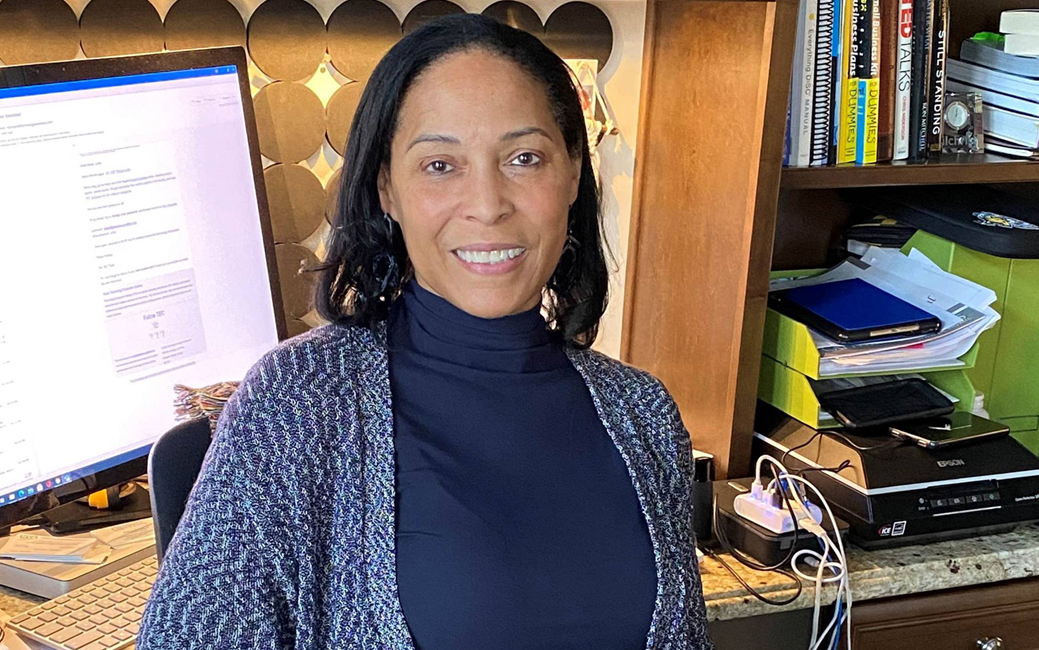Coffee With...Linda Singh
We spoke with TU’s inaugural leader-in-residence, a retired adjutant general of the Maryland National Guard.

Q: Was there a history of military service in your family?
A: My grandfather served in the Navy during World War II. Three of my uncles were drafted during Vietnam. My oldest brother joined the Army. It wasn’t their influence; I was homeless, a high-school dropout and I ran into a National Guard recruiter in the mall. It seemed like a way for me to be able to get away.
Q: At what age did you become homeless?
A: I left home at 15 because my parents and I had a falling out. I would stay with my
sister
and her foster mom and friends. I was couch surfing, and, at times, I had no place
to surf so
I stayed out in the street. I would rent rooms when I could afford it.
Q: You enlisted in the Guard in 1981. Did that become your full-time occupation?
A: It was part-time. The first years were bumpy. I ended up taking a medical [leave]
for a number of years until I got myself together. When I came back, I went into the
reserves, stayed for about
six years and then switched back over.
Q: What were you doing workwise during this time?
A: Oh God, anything I could. I worked at McDonald’s, I did some summer work at an office, I worked at department stores.
Q: What was the turning point for you?
A: I was working a temp job and then I got a full-time job with a defense contractor. I was doing office support but quickly moved up to be their office manager and then started doing some contracts management. Each time I moved on, the jobs got better. Then one of my bosses recommended that I get a business degree. I started working on my degree, which took 10 years. In the process, I had a first sergeant who convinced me to go to officer candidate school, so I left the reserves and became an officer.
Q: You were the first female and the first African American to be adjutant general in Maryland. What does that mean to you?
A: I didn’t really think about it in that sense. You know people are going to look at it and say, “Did she get the job because she is a female?” Why can’t you just give me credit for being good at what I do? I got the opportunity to put more women and minorities in positions of leadership. But if they weren’t the right leader, they didn’t get selected.
Q: Where did this opportunity from TU come from and what excited you about it?
A: In 2019, I got my Ph.D. in industrial organizational psychology. I knew I wanted to affiliate with an institution, and I knew I wanted my affiliation to be local. I had already been doing some partnership work with Towson University with the Guard, and President Schatzel has always been a good friend and mentor.
Q: What is your role?
A: The focus is looking at the leadership programs across the university and trying to determine if we are synchronizing our programs. Do we have gaps? And if we have gaps, what can we bring to bear to fill those gaps? How do we leverage the programs that we have and take them from good to great?
Q: What makes a great leader?
A: In my opinion, being humble. Being yourself. You need to know your strengths, and you need to know where you fit in the scheme of things. If you have to build a team around you, then how do you build that? If you’re given a team, how do you start mobilizing that team in a manner that we can start acting as one?
